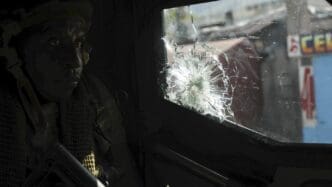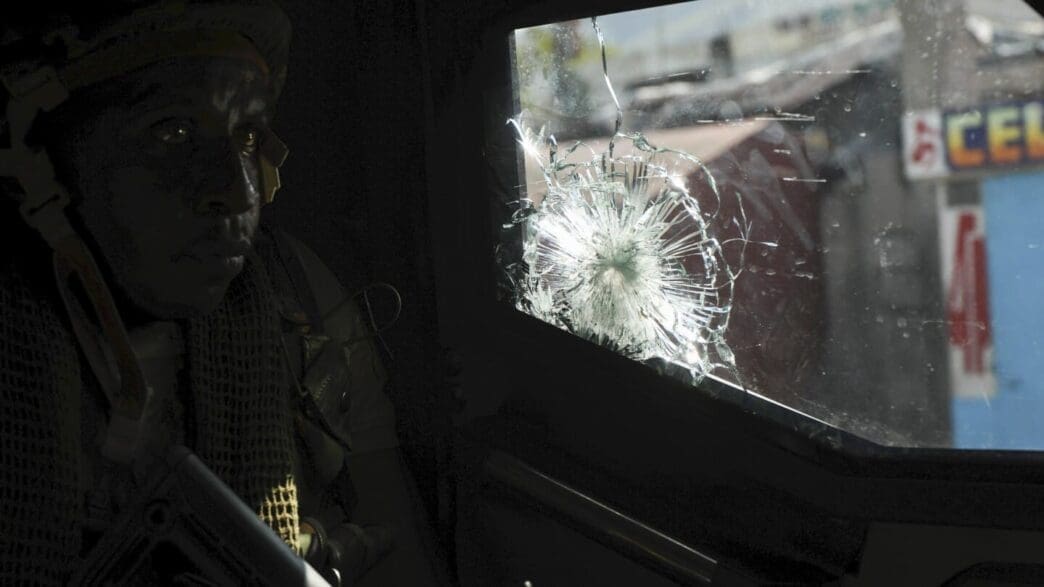In the heart of Port-au-Prince, a chilling narrative unfolds as a notorious gang leader is accused of orchestrating a massacre to avenge the death of his son.
The streets of Port-au-Prince, Haiti, have long been fraught with violence, but recent events have shocked even the most seasoned observers. A powerful gang leader, who controls the crucial port area, has been accused of slaughtering more than 100 older residents and Vodou priests. The motive? Allegations of witchcraft following the severe illness and subsequent death of his son.
Haiti’s government has confirmed the grim event, labeling it an ‘unspeakable carnage.’ At least 100 were reported killed in the impoverished Cité Soleil neighborhood, though estimates fluctuate wildly due to the inaccessibility of gang-controlled territories. Human rights organizations, including the National Human Rights Defense Network and the Cooperative for Peace and Development, have been pivotal in shedding light on the events, pushing official figures to over 100 victims, primarily elderly individuals caught up in the violence.
The situation has drawn international attention, with Volker Türk, the U.N. High Commissioner for Human Rights, verifying reports from his office citing over 184 deaths, though the exact origin of these figures remains murky. Meanwhile, the U.N. Secretary-General’s office has corroborated at least 127 of the deceased were elderly.
In a disturbing narrative woven by local rights groups and community testimonies, Micanor Altès, known by his aliases Monel Felix and Wa Mikanò, took drastic measures. The death of his child allegedly due to sorcery led him to target these vulnerable community members. Altès, notorious for his criminal activities including robbery and extortion, seems to have amplified his reign of terror, previously not seen to this degree of brutality.
Reports indicate that well-known community figures, Vodou leaders, and even motorcycle drivers attempting rescues were methodically rounded up and executed in Altès’ stronghold. The brutality extended as far as imposing restrictions on leaving the community, a measure seemingly intended to weed out those suspected of sorcery.
While killings in Haiti often reach social media, this massacre has remained shrouded in unusual silence. Observers note the lack of typical digital footprints, a silence that compounds the horror of the events.
Micanor had earlier targeted Vodou practitioners, evidencing a long-standing belief in their alleged malevolent influence. Vodou, a religion deeply intertwined with Haiti’s history and culture, often falls prey to such unfounded accusations, despite its legitimate place in Haitian spiritual life.
This atrocity comes on the heels of similar incidents in Haiti, where the balance of power is continuously challenged by warring gangs vying for more control. The country’s police force, already overwhelmed, struggles to respond effectively, compounded by the inadequacies of a U.N.-backed mission led by Kenyan officers para-policing the region.
Human Rights Watch has called for urgent international intervention, citing the dire human rights situation in Haiti. They emphasize the constant threat under which Haitians live, fearing violence from gangs while they face everyday struggles for basic needs like food and water.
The crisis is exacerbated by a backdrop of political instability and insufficient international support, with more than 4,500 people reportedly killed in Haiti this year alone. Such statistics portray a nation on the brink, requiring immediate and sustained global aid to quell the escalating violence and provide a semblance of peace and order.
The unfolding events in Haiti serve as a stark reminder of the devastating human impact of unchecked violence and retribution. As Haiti grapples with gang control and the fear it breeds, the international community’s response remains crucial in tackling both the immediate crisis and long-standing systemic issues.
Source: Apnews








